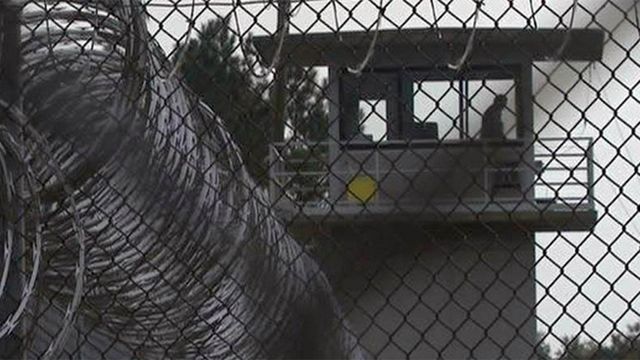Inadequate staffing, 'meaner' inmates make NC prisons more dangerous, officials say
North Carolina's prison system is taking an array of steps to increase safety and security following the deaths of five corrections workers last year, Secretary of Public Safety Erik Hooks and his staff told lawmakers Thursday.
Posted — Updated"Prisons are dangerous places, and the problems within them didn't happen overnight," Hooks told members of a legislative oversight committee.
Policy changes to keep people convicted of misdemeanors out of state prisons have left corrections officers to handle more violent, habitual offenders, he said. At the same time, the number of inmates with mental problems has soared by 65 percent over the past decade.
"You've got some very sick people who shouldn't be in prison intertwined with some very mean people," Director of Prisons Ken Lassiter said. "We're putting people behind bars that are meaner and more aggressive, and our staffing is not designed for this."
The prison system has about 1,300 vacancies statewide, officials said, and rapid turnover makes it almost impossible to close that gap.
About 75 people were hired each month in 2016 to work in state prisons, but the system lost 150 people a month during the year, Pam Cashwell, chief deputy secretary of the Department of Public Safety, told lawmakers. The system continued to lose about 150 people a month last year, although pay increases helped boost hiring to 147 people a month.
"Retention is a serious issue, and we cannot hire our way out of this," Cashwell said, adding DPS is trying to update its recruiting materials and work more closely with community colleges.
Hooks noted that, when he took charge at DPS last year, he learned that hundreds of correctional officers on duty had not had even basic training. More than 2,000 have been retrained over the past few months, he said.
Hooks said he tries to keep open lines of communication across DPS to address employee problems.
He and Cashwell also put the onus on lawmakers to provide more funding for the prison system and to give correctional workers more tools to address inmate misconduct, such as making exposing oneself to a prison worker a sex crime guilty of an added sentence rather than merely an infraction that carries a loss of privileges.
Cashwell noted money will be needed to expand and upgrade security camera systems, issue personal alarm lanyards to thousands of prison workers and visitors and deploy more cellphone detection and signal disruption systems.
Those are only some of the steps recommended by two independent studies conducted after the Pasquotank Correctional deaths. Cashwell also cited these changes:
- Batons have been issued to officers at medium-security prisons.
- Tasers are being deployed in a pilot project.
- Stab-resistant undershirts are being ordered for 13,000 workers.
- Prison floorplans have been added to a state emergency management database to assist first responders.
- Officials will review who is assigned to maximum-, medium- and minimum-security prisons to see if any changes are needed.
- Work emails are being created for about 9,000 prison workers to keep them up to date.
- A two-hour situational awareness training course has been added to basic training for corrections officers.
"We appreciate the department’s efforts to solve what, for our members, is a constant threat to their lives," Robert Broome, executive director of the State Employees Association of North Carolina, said in a statement. "Ultimately, everyone has the same goal, but these decisions can’t be made in a vacuum in Raleigh. The opinions of the real experts, the prison employees, who risk their lives to keep us safe, must be considered."
Related Topics
• Credits
Copyright 2024 by Capitol Broadcasting Company. All rights reserved. This material may not be published, broadcast, rewritten or redistributed.






